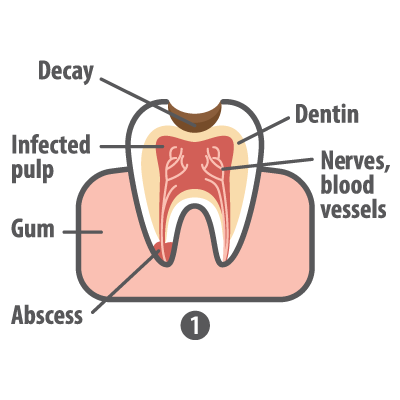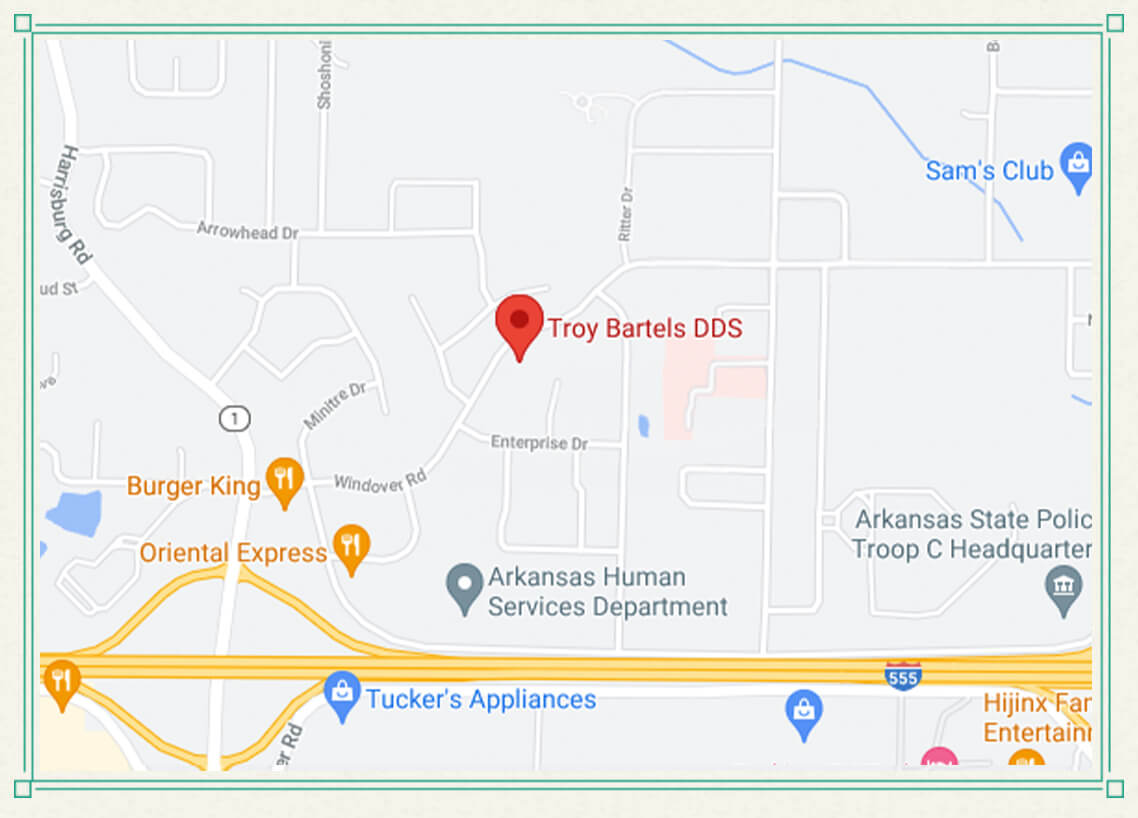Root Canal Treatment in Jonesboro, AR
You don’t need to dread the thought of having a root canal! Root canal therapy has unfairly received a negative reputation, and if you have a severely infected tooth, this treatment could mean the difference between saving and losing that tooth—and it means finally getting relief from that toothache you’re probably feeling. At Troy Bartels, DDS, we provide gentle, effective treatment so you can get back to smiling.

Signs Your Tooth Might Need Root Canal Therapy
Not everyone experiences the same symptoms signaling they need root canal treatment, but here are some of the most common signs:
- Toothache (can range from a dull ache to a sharp pain)
- Gum tenderness or swelling
- Darkened/discolored tooth
- Prolonged sensitivity to hot or cold foods and beverages
- Pimple-like bump or abscess
If you exhibit any of these symptoms, the best course of action is to contact our office so we can determine the source of the symptoms, and whether root canal therapy, abscess treatment, or another restorative service is the best next step to preserve your oral health.
How the Procedure Works
This procedure is a way to remove the inflammed nerve tissue within a tooth to get you out of pain and get the tooth ready for a definitive restoration.. The treatment gets its name because that inner material, also referred to as the pulp, is located within the space within the root of a tooth (the canal).
After we’ve taken X-rays and planned your treatment, we’ll apply local anesthetic near the tooth being treated to prevent discomfort during the procedure. Next, we will make a small hole in the tooth, through which we’ll clean out any decayed material. Then we fill and seal the tooth and place a restoration like a dental crown, which are essentially caps for your teeth, for added strength and protection.
Is There an Alternative to Root Canal Treatment?
The alternative treatment to a root canal would be having your tooth extracted. Dr. Bartels will typically recommend attempting to save your tooth because their success rate of this procedure is over 90%. Saving your tooth can prevent future troubles such as bite problems from shifting teeth, difficulty eating, and loss of jawbone volume or density.
Do Root Canals Hurt?
One of the biggest misconceptions about root canal treatment is that it causes pain. What many people don’t realize is that what’s actual painful is the tooth infection itself, and not the procedure — which is designed to alleviate that pain by removing the source of the problem. Thanks to advancements in dentistry, as well as local anesthesia, what you’ll feel during the procedure is more like a slight pressure. Our team always prioritizes your comfort, and we work hard to make it easy and stress-free for you to receive the dental treatment you need.
What’s Happens After the Procedure?
Most patients report having some tooth sensitivity for a few days following their root canal. Most discomfort can be relieved with an over-the-counter pain reliever. Dr. Bartel usually recommends avoiding chewing on your tooth until it receives its permanent filling or full-coverage crown, depending on the condition of your tooth prior to treatment. These options will be discussed with you during your initial consultation.
Frequently Asked Questions
Q: Why does a tooth need a root canal?
A: Treatment is indicated when the nerve in a tooth gets infected, and thus has to be removed from inside your tooth. Teeth most often get dental infections from cavities, which is why regular checkups are important to make sure that you don’t have any cavities that get so large that they start to causae tooth pain.
Q: Why not just take the tooth out?
A: You could take a damaged tooth out, but in the long term it’s better to try to restore your tooth back to the way it was before it needed treatment. No dental restoration will be as strong as your natural teeth, which is why if you need a root canal, it’s important to make sure that the infected pulp is removed as soon as possible.
Q: Does a root canaled tooth always need a permanent crown?
A: Generally speaking, yes. Once the treatment is completeed and the tooth is cleaned and disinfected and you are no longer having discomfort, we need to restore the tooth back to full funciton. Because teeth that need root canal are often teeth with large previous fillings or other work, most teeth will often need a dental crown.
Q: Where is your office located?
A: We are a Jonesboro dental office and proving root canal treatment is part of the comprehensive dental services we provide for our patients.







